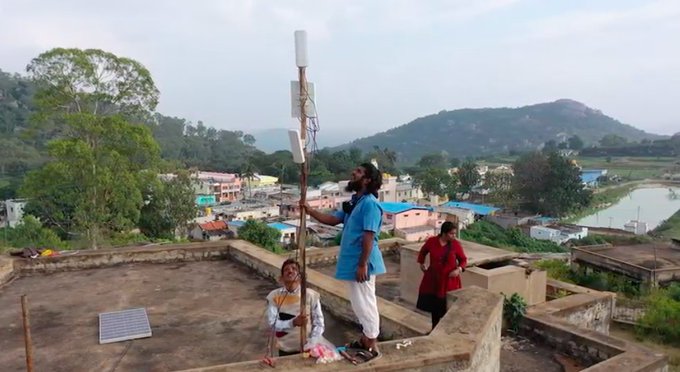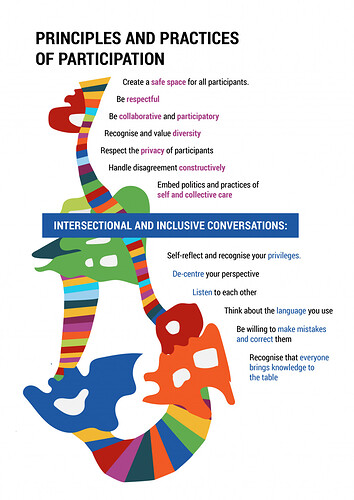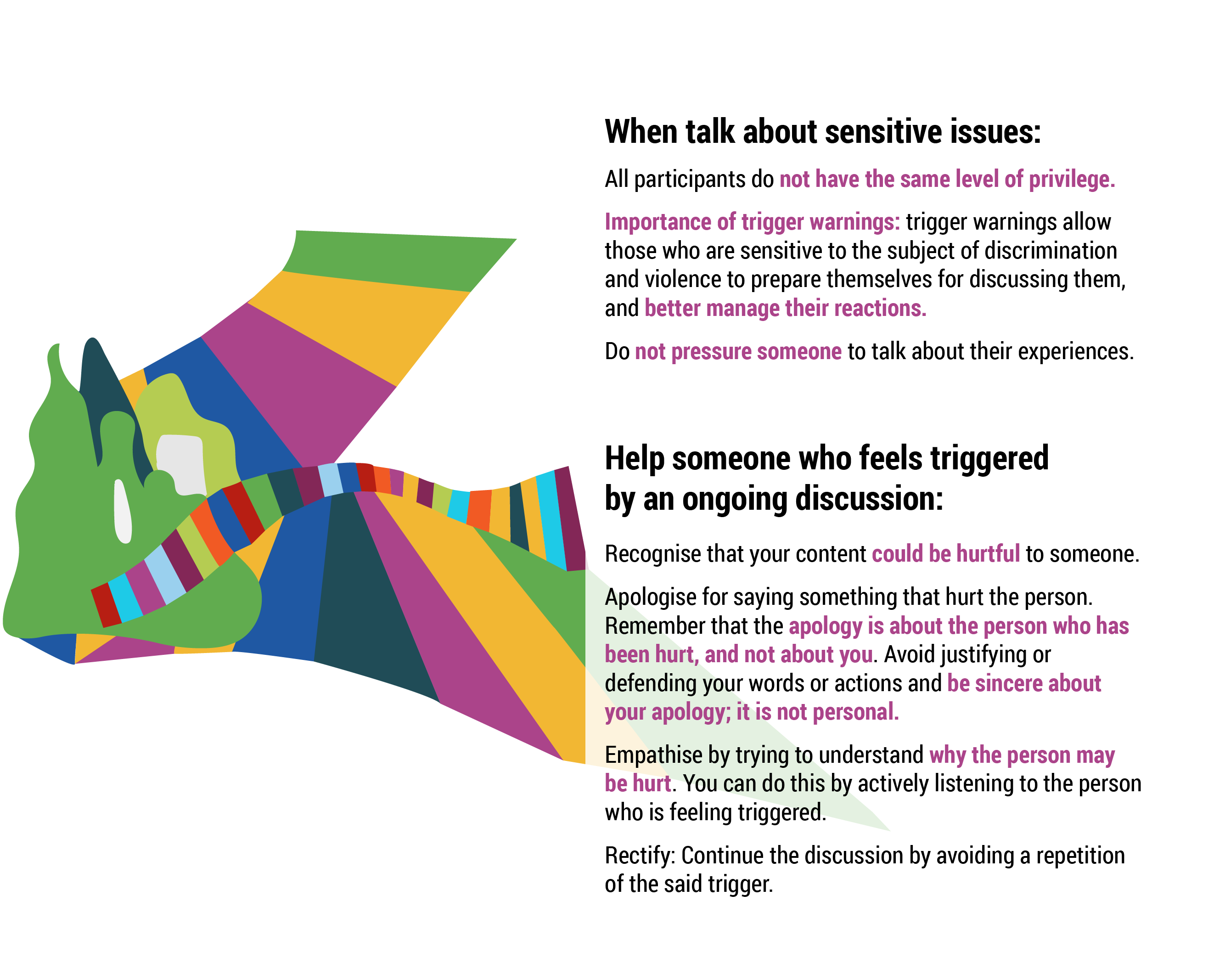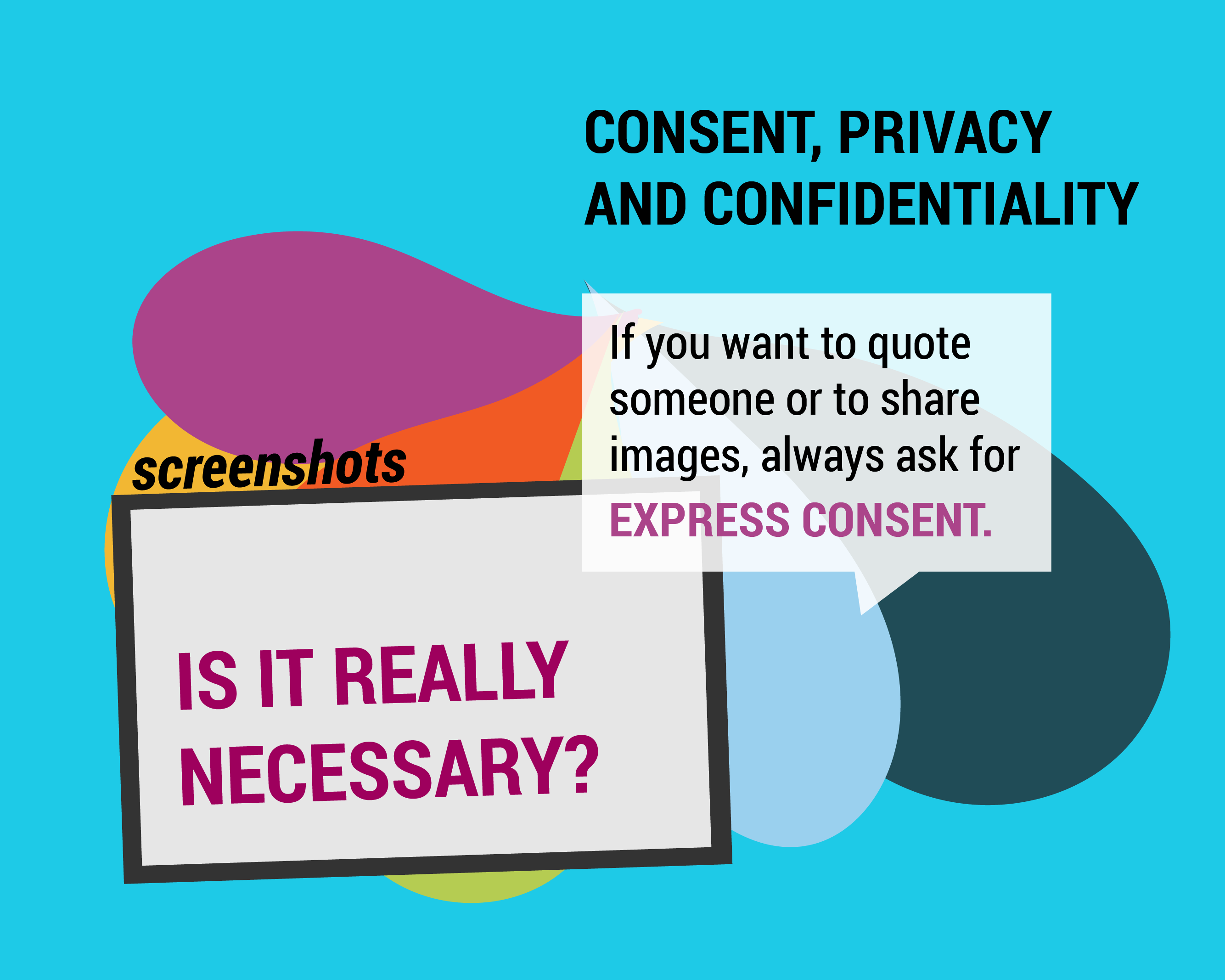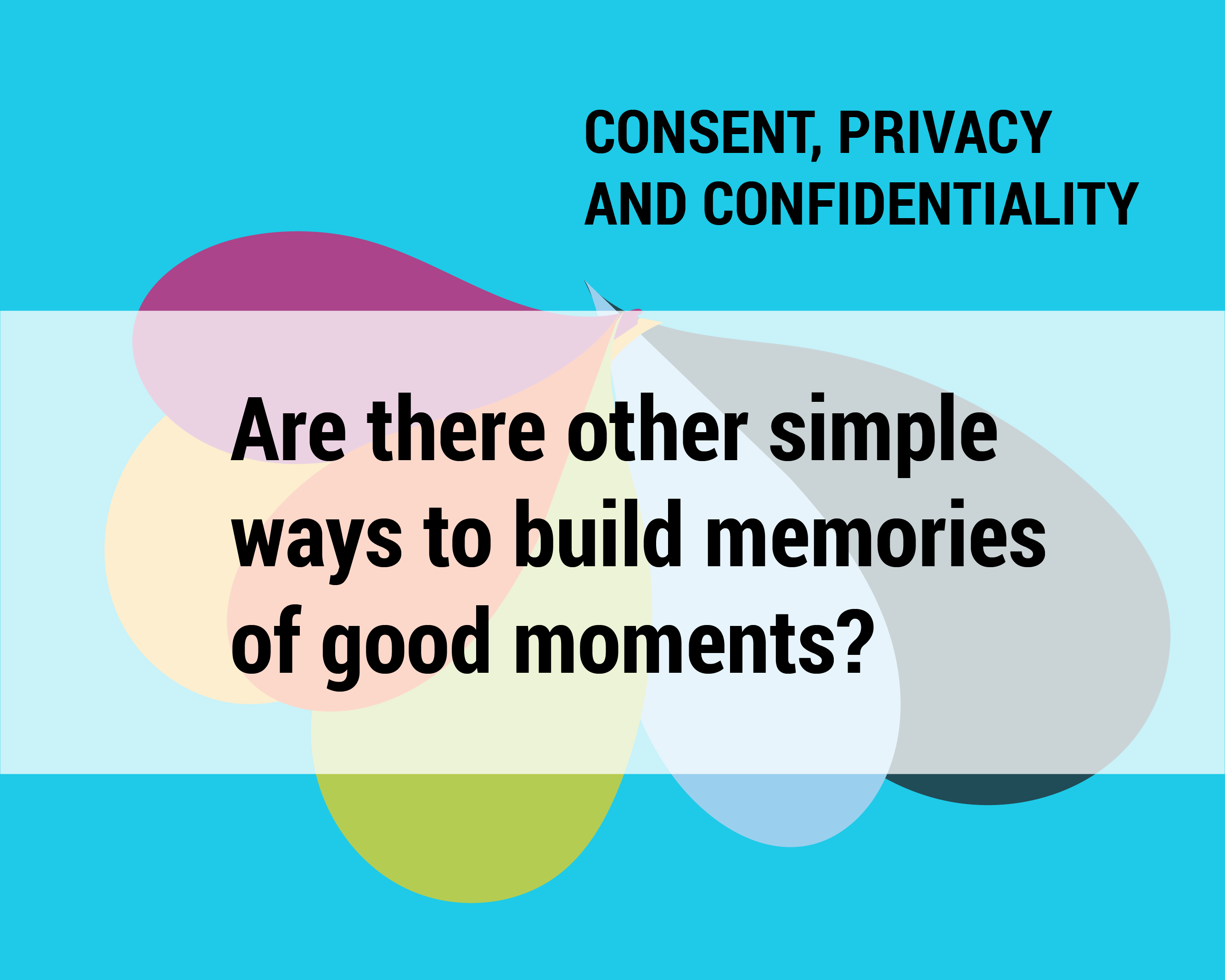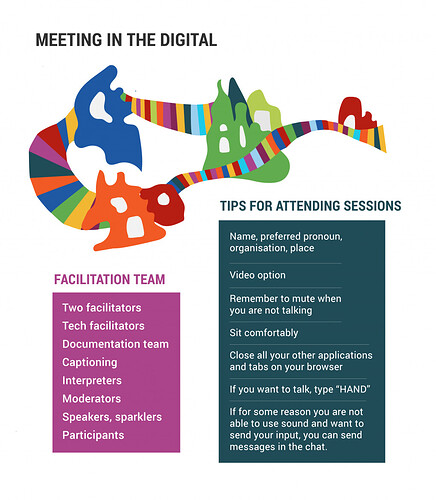Notes from the lightning talks
Welcome (Nils)
Intro to presentations (Sarbani)
List of CNs in Asia (our peers)
- Janastu/Servellots India
- Common Room, Indonesia
- BAIF
- Asorcom, Maynmar
Evry each one works on different topics, on the needs of the communities: ex. Community Radio, Local Knowledge and Agriculture, Remote Banking, Remote Education … just a snapshot of what is worked on
Asia Grantees 2021:
- Institut KAPAL Perempuan, Indonesia
- Servelots/Janastu, India
- MAYA (movement for alternatives and youth awareness) / Design Beku / Janastu
- Asorcom (India/Myanmar)
- University College of Technology Seawak, Malaysia
Before the presentations I will present each project and we will then hear the lightning talks
1. Institut KAPAL Perempuan, Indonesia (Inri presenting)
[lost beginning switching the chanells] We will intensively work in the fields of the project areas. We will start with a video
[VIDEO] …we will provide translation
- collaborations with local radios
- initative part of digital access program
- Techer and students tetimonials on Radio Supurenno. Helpful for distance learning, sometimes students away, but problem that there is no Internet always, using the radio to learn, happy to hear about radio, a blind man looking forward to the transmissions, will open up to informations, in female school the radio created now connections for odering products produced. high school students prais information about early marriages and the risks involved, farmers praise the weather forcasts, emergency service for the Island recognized by government, very helpful for learning, small traders can announce business, Covid-19 informations and protecting and health programs aired
This is the video that has been created, that is how people describe our work. This is how we develop the radio as a women school to reach the remote areas, very helpful for the sustainability.
What are the benfits of the radio program? Heared already in the testemonies but in general worlds: 2% of women micro business increased during pandemic, 395 students learning through radio, reporting of domestic violence on the radio (the broadcasters will protect), also denouncement of child marriage, also some resource persons in community radio for women protection, because in the regions there is no strict policy, nor obeying the rules, we also provide free electricity to 500 households, fishermen unaware of the weather have now the right information
Gustaff provided initial information, very supportive, along with Sarbani, APC support for women radio infrastructure. we can extend now our assistence to people in remote areas. In Lambok the infrastructure is now available and we are getting broadcasting licenses for 6 month periods…this is one of the challenges: until we have the licenses available. Also still pending workshops for broadcasters…this will start soon, the implementation of radio broadcasts in the pandemic will be kept up, especially for women, think about this and other themes for radio broadcast (ex. rights for women during pandemic), women fully impacted in remote areas), other problems; child marriage, economic problems. Advocacy is also an important field, support for radio with the local government (one session), how the local government could support (budget funds).
The background of the project: our main objective is to overcome problems of availability (radio) and gender challenges
Areas: working in two areas.
Sharing pictures of the team
2. Servelots (Dinesh, Shalini)
…introducing the project servicing the community owned net meshwork (COW)
DD Hils
Dinesh: Valleys are full of echos…so what we are trying to do, we are trying to see where to go with the mesh netoworks with a diversity of communities and then think waht could be the services for them, we want to investigate whre to go with people marginalized with literacy, how to make radio available and also local knowledge sharing. Internet is helpful for this.
I will now talk about the village. The nearest fiber is 11km away, line of sight. Until now testing with 1GB capacity…this will change a lot. The learning is part of the process, the LibreRouter testing, there were problems, now working on better throughput, Fromm DD Hills main node the signal is further shared with local access points. There are several villages involved, including low cast village with few services and possibilities for young people…want to better understand what it means to work in this direction.
In the pictures we can see Shalini and others doing maintainence and care: getting fiber, instalation of LR, or removel of boxes the get out wasps.
A picture shows the “feminine perspective”. What we see is not a Dalit village but we see the distribution of resources given by the government. Huge sacks to carry for 2k…it takes a long time to prove whoe they are…the main point is; the distribution center is in the upper cast village and has to be carried to the lower cast village. We call it feminine perspective…or claiming the feminine…we do not want to back but be gentle with the solution without blaming.
The COW mesh will provide better services, to organize help for instance.
The general way of looking is to learn with the community. We distribute vouchers or do quizes to gain vouchers.
There are no more slides, we are done…
Sarbani: always nice to see the team at work
3. MAYA / Design Beku / Janastu (Naveen, Reka)
Exploring the potentials of a community owned health knowledge, COwHKi
[a precorded talk of Naveen]
I will introduce our project, collaboratively designed. To improve life and wellbeing.
Context: training and support with community health workers, testing and counceling (ex. malnutirtion). Maya trains with equipments
Content: health workers deal with data, that not only health date in the classical sense.
Naveen shows a video recording of diagnistics, a way to share knowledge about use cases of preventive care.
Se we can also create content to educate the community. And some communities are also oral knowledge holders. Also know how can be shared (availability of vaccines).
We want to train help workers to understand what is the knowledge.
COW mesh will be the underlying infra, work with smartphones. Important: all information is owned locally…that is the broader goal…we will imagine, work and learn together.
That is more or less our project.
Sarbani: the work reminds me on my former work on health knowledge
4. University College of Technology Seawak, Malaysia (Tariq, Gari)
Digital Inclusion policy |
Broadband over powerline project.
Thank you all, a good day to everyone. Here it is almost evening. So, it is nice to be part of this team and to have this meeting and to know each other. We are part of Borneo island, very diverse communities, enjoying life together, also lots of bio diversity. Malasia has a well developed Internet but not in rural areas…facing the same challenges of access and meaningful connectivity. I will share a two minute video…Gary will lead the project and is with us. We are building on a prototype, business and government collaboration
[video, insights of deployment of powerlines modified for connectivity]
…very sophisticated approach and difficult to sustain, we need a more holistic picture, look at the government’s policies and understands gaps, we also want to develop a manual for CN, better understand digital rights, tools on internet accesibility will be compiled
Thank you, this was a quick one. Hoping to have more discussions in the future.
5.Asorcom (India/Myanmar) (Michael)
Network for Burmese refugees in India: Empowering Women Social Enterprises, specifically 300 women that are refugees, living close to the boarder, now on the way back from the border. This project is about to empower the women community and to endorse them in traditional weaving, the work already on weaving centers, long shift, they have no time for other things, still have to support the families, so they cannot attaend classes. Intenet conectivity will be brought to the weaving centers and create content for entertaining, story telling and to inform to then found a women enterprise at the end of the project. The military coup is hard to bare, we do not know if there will be civil war soon, Want to earn money to support the families back, kids want to learn english online, opens better opportunities.
In the slides you see the weaving centers and the houses, where people live, there are more then 100 refugees in one state, but there a 3 states with refugee presence. The idea is to support them and to be creative and not only target the market in India but also sell over Internet. They have a skill for traditional products but also others, because of Covid-19 restrictions they cannot sell but once they are a cooperative they can sell online and their market will be bigger, which means more self-support for refugees.
Vacination for refugees is also a challenge…in the picture we see people on their way to vaccination.
We also started to plant food for other refugees arriving. Ww expect other CNs to learn from our experience…we have the man powerto grow food and support other refugees.
Sarbani: Thanks and sorry for interrupting.
Q&A session …please open your Mics
Gary: a question on the COW mesh network. What technology are you actually using?
Dinesh: Sorry Gary, what we are doing is to get fibre to a high building and then we had to find a fiber service provider close to this building, in this case railnet, fiber along the linges. 100MBP, We first tried a MS400 with not enough throughput but I can give you all the details…Ubiquity is connecting the main things
Sarbani: question for Naveen from Maya Project: where is the helth knowledge going to be stored? What is the replicability of the project? And how is well being defined?
Naveed: First answer: thinking of a local server, some physical spaces or households of healthworkers could work. The importance is also to have the local access points. THe second point: in terms of the notions of well being, we are working on ideas of knowhow and strategies…not clear about replicability yet…hoping the workshops will bring forward those questions.
Avi: yet another health project, using phone system. Is this a possibility to extend the focus?
Naveed: Interesting. Until now the focus has been on the health workers. Lots of ways to engage, that is a possibility.
